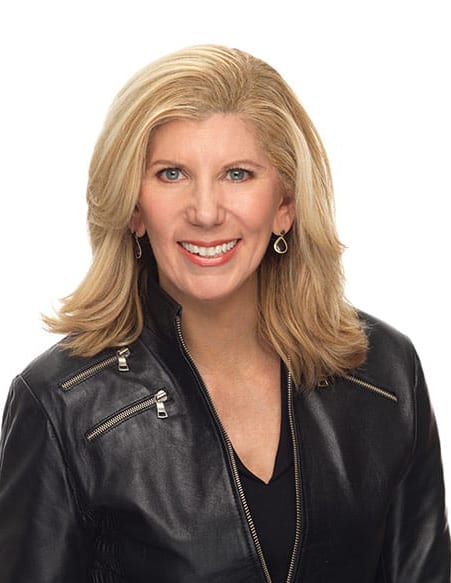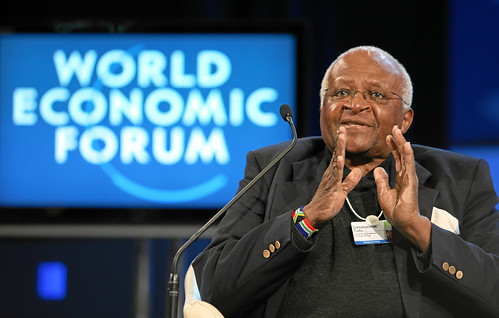This week, Barri Rafferty, senior partner and director, New York, is blogging from the World Economic Forum’s annual meeting in Davos, Switzerland.
Going with the flow has become my mantra at Davos. After starting the day with a change of plans when my car got stuck in snow and I unexpectedly met some people who were also attending Davos, I am realizing that the unscripted moments may be the most important ones.
And considering some of the key themes so far at what people are saying is the snowiest Davos ever, staying calm and keeping an open mind is essential. The mood encompasses a pessimistic point of view on the economy and worries that business and government leaders may not have the courage to make the changes needed for real transformation.
Europe is a focal topic here. At the opening session, Chancellor of Germany Angela Merkel said, “We are labeled the economic headache of the global economy,” but that in truth Europe is only one problem among many for the world economy. She spent most of her speech answering the question, “Do we dare be more Europe?” By this, she meant how Europe can be even more European in terms of budget discipline, competitiveness linked to jobs and solidarity between fellow countries. Themes around what will be next for Europe will continue throughout the next few days.
Archbishop Desmond Tutu was the inspirational speaker for the opening, and he focused on equality. “Each one of us is made for goodness – even bankers,” he said, which got a laugh. “We are born with an infinite worth, but not equal,” he went on to say, painting a picture of a possible world where workers get a fair wage, executives don’t make astronomical amounts of money, and everyone comes together on a level field of social and economic fairness. He also elaborated on equality for women, saying, “We won’t make it without the woman… We need a revolution led by women.” Tutu’s speech ended with a call to listen to the young and help them create a better world. His passion makes this speech one that’s worth looking up to read verbatim. (Meanwhile, here’s a blog post he wrote for the Forum today with many of the same themes.)
Change and Sustainability
I also attended a session called “The Architect of Change,” where Mexican architect Enrique Norton said that “the environment is all around us, it’s in us.” He discussed rethinking the meaning of public space, the need to focus on recycling, and preserving our water supplies to support the growth of urban density. Mass migration to large cities requires a new urban approach, and he provided some good examples of cities like Mexico City that prioritize research to build a longer-term city commitment to change.
The session entitled “The Sustainability Context” had the most candid debate I have thus far experienced here. Areas the panel agreed on were:
- Climate control has a brand image problem.
- We have to shift our focus from shareholders to stakeholders in order to push for long-term solutions.
- Policy changes and infrastructure decisions are more important than consumer change.
- Reusable goods that create more value and less focus on volume is a key element.
- State or company investments have the greatest ability to impact change, despite the challenges of a long investment cycle.
As the middle class grows in parts of the world and rural consumers move to urban environments, it puts more pressure on our need to change. The panelists did not agree on what will impact sustainability the most, and possible ideas included a common tax, regulation, carbon offsets and new revenue streams, among other areas of focus. The session ended by making it clear that we need an evolutionary leap in our thinking – and our doing – if we want to resolve these sustainability issues.
Powerful Storytelling
The last session of the day featured an area that I was particularly interested in, given our very own focus on storytelling at Ketchum. During “Powerful Storytelling.” Jeffrey Fader, executive producer of 60 Minutes, said he thinks people are turned off by economic crisis unless communicators find a narrow way to tell the story and dig deep in order to give it dimension.
I also liked radio producer Unwana Udobang’s description of a story as a triangle. She described the base of the triangle as the idea, the tip as adrenaline or the excitement of forward momentum, the center as the heart of the story, and the lines that compose the edges as connectors that define and clarify. She also said, “A good story never loses its humanity.” All speakers at this session encouraged us to try new concepts, tap emotions, and dig in to individual stories,
It was an eventful day, and I’m looking forward to even more events this evening. The idea that this is in fact a marathon and not a sprint has become very apparent.
Want to learn key insights from the World Economic Forum? Click here to register for our complimentary webinar on January 30.





